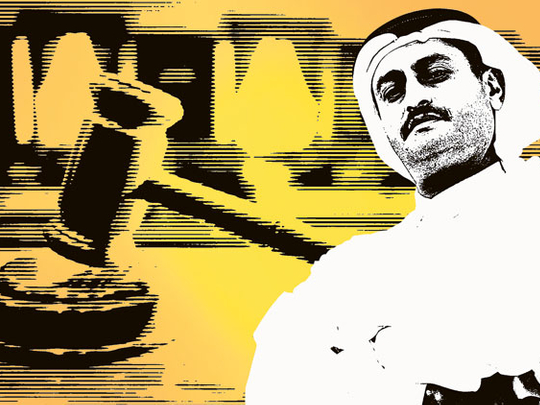
Two weeks ago, the DIFC Courts organised its first Emirati lawyers' event. The apparent goal of the event was to introduce the DIFC Courts to Emirati lawyers and make them acquainted with the common system of law that is applied in the DIFC Courts. The event marked also the signing of a memorandum of understanding (MOU) between the Courts and the Judicial Training Institute of the Ministry of Justice to provide training in common law system for Emirati lawyers as part of their qualification process. The event was attended by a good number of Emirati lawyers which indicated their interest in the DIFC Courts.
All that is beautiful and bright. However, one question that the organisers did not address, although it was heavily debated during the event, is the issue of language. The DIFC Courts adopt English as the language of proceedings and advocacy. The whole system of the Courts is built around English. So the question that arises is how would Emirati lawyers, many of whom are not fluent in English, practise before the DIFC Courts? The broader question of course is: Should English continue to be the only language that is used at the DIFC Courts?
Precedents
The question may look strange as it has been taken for granted that the DIFC Courts are an English language jurisdiction. I beg to differ. One should not confuse a common law system with the English language. There are many legal jurisdictions that adopt the common law system in their national language. Malaysia is just one example. In fact, few may know that until 20 years ago Sudan was a common law jurisdiction. It was only in the nineties that it switched to a civil law system. So, the system of common law can be practised in any language, including Arabic.
The UAE is an Arab country. The official language of the country is Arabic. The DIFC is an entity created by a federal decree. Hence, it is logical for the DIFC Courts to use Arabic as a language of practice alongside English, which is the language of the business community in the DIFC.
English was decided to be used as the language of the DIFC Courts as the initial concept of the Courts was that it would only serve entities within the DIFC and since the official language of the DIFC is English. However, the recent changes in the laws of the DIFC Courts have expanded the remit of the Courts to include entities outside the DIFC where these entities agree to submit their disputes to the jurisdiction of the DIFC Courts. With this expansion of the jurisdiction in mind, it is legitimate to argue that Arabic should be a working language of the DIFC Courts since there are many entities outside the DIFC that use Arabic as their business language.
In addition, since the reason upon which the expansion of jurisdiction is based is to give parties outside the DIFC the freedom to choose the DIFC Courts as a venue to hear their disputes, the same freedom of choice should be given to these parties on the language that they wish to use before the Courts.
One may argue that adopting Arabic could prove to be burdensome as pleadings and documents have to be translated into English since the judges are English speaking. This argument does not stand as the DIFC Courts have judges whose native language is Arabic. Besides, in all cases, documents drafted in a language other than English are already being translated into English. So, this should not stand as an obstacle to the Courts adopting Arabic as a working language.
Strategic aspect
The issue has also a strategic aspect. If the DIFC Courts are serious in being firmly placed within the judicial system of Dubai and the UAE, and serious in their call for Emirati lawyers to get involved in the Courts, then the issue of adopting Arabic as a working language must be given serious consideration. During the event, the governor of the DIFC and two of its prominent judges, namely Ali Shames and Omar Al Fujair, welcomed the idea of using Arabic in the court system and saw no difficulty in implementing it. However, it is ironic that more than two weeks have passed since the event took place and no news has emerged with regard to the event or the MOU signed with the Judicial Institute. This makes us wonder if the DIFC Courts are having second thoughts on the event and the welcome its members accorded to the idea of using Arabic as a working language.
This article is published in English out of deference to all those who do not speak Arabic.
Dr Habib Al Mulla is founder and chairman of Habib Al Mulla & Company, a UAE-based law firm.












